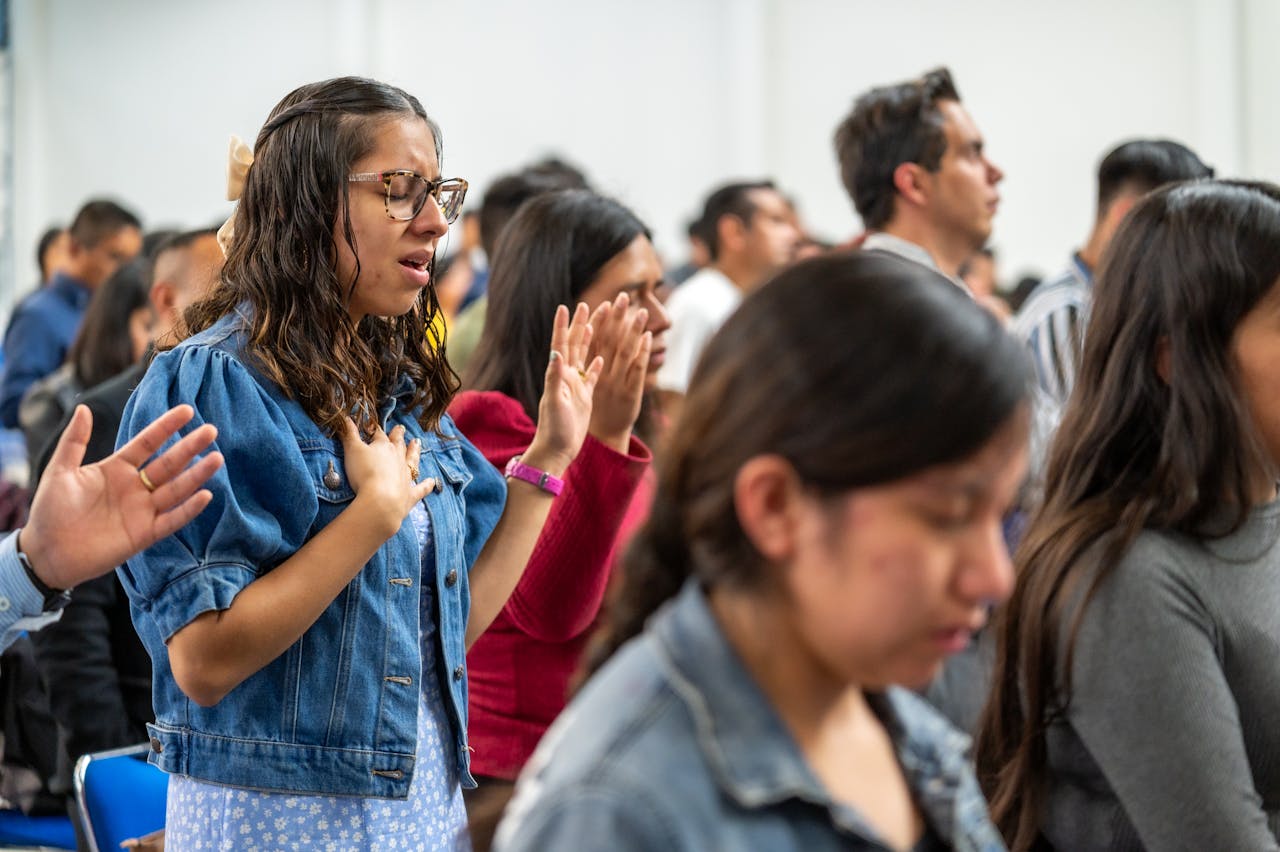
Students may have to rely on state laws for religious accommodations. (Pexels Photo)
By Frank S. Ravitch, Michigan State University, The Conversation

Curious Kids is a series for children of all ages. If you have a question you’d like an expert to answer, send it to curiouskidsus@theconversation.com.
Can a school ban a child from praying, or do schools have to provide accommodations for children with certain beliefs? – Isaac T., 17, Flint, Michigan
Can you imagine starting each day at school joining your class in a prayer that you might not believe in? Back in the 1950s, many teachers led the class in a public prayer, and these prayers were usually from one religion. In 1962, the U.S. Supreme Court ruled that school-sponsored classroom prayer is a violation of the First Amendment of the U.S. Constitution.
But that doesn’t mean students can never pray while in school. The rule against organized school prayer is balanced by another First Amendment right: the free exercise of religion. As a law professor who specializes in law and religion, I’ve studied how the First Amendment applies in a school setting.
Freedom of religion was important to the people who wrote the U.S. Constitution. That’s why the First Amendment contains two separate provisions dealing with religion: the establishment clause and the free exercise clause.
The establishment clause forbids the government from “establishing” a religion. That is, the government can’t set up a national religion, promote or favor one religion over another or tell you what religion you have to follow.
The free exercise clause says Congress can’t make a law that prohibits the “free exercise” of religion: As citizens, we have the right to follow the practices of the religion of our choice. The government, generally, cannot interfere with how we practice our religious beliefs, within reason.
These rights sometimes conflict in a school setting. Recently, the Supreme Court decided that a football coach could pray in public, on a school’s football field – but in that case the coach prayed after the game was over. That case has been highly criticized, and the Supreme Court did not explain what the rules are for other situations.
Students do have the right, within limits, to pray in school. But a student’s right to pray cannot interfere with the rights of other students. If you wanted to lead the class in prayer, or start witnessing during study time, or denounce the teacher as the devil, you couldn’t. The school has a right to control the classroom. So it can prohibit vocal student prayer during class.
But if a student wants to say grace before meals or pray before a class or between classes, that is protected by the Constitution. That said, if a student wants to say a silent prayer anytime, including in class – before taking an exam, for instance – that’s their right. The Constitution doesn’t restrict private thought.
Accommodations not required
If a rule or law applies the same to everyone, the free exercise clause does not require a state or a public school to make exceptions to accommodate someone’s religious practices, according to the Supreme Court.
As a practical matter, however, public school students who need an exception will usually get one. Many states have interpreted their constitutions, or passed laws, to require schools to work with students so they can practice their faith and still meet class requirements. In most schools, a devout Jewish student who needs to pray three times a day facing toward Jerusalem, or a Muslim student who prays five times a day while facing toward Mecca, will be allowed to do so. They might get a short break during class, for example, or a class schedule that allows time outside of class for prayer.
Reasons for denial
Sometimes a state – or a public school – will have a “compelling interest,” that is, a really strong reason, for telling people they can’t follow their religious beliefs. For example, the state’s interest in making sure a seriously ill child receives medical care is a strong enough reason to deny the free exercise rights of parents who believe seeking medical attention is against God’s will, even if it means their child dies.
Even when there is a really good reason for a law or rule, the state – or the school – must show there isn’t some other way of getting the same result that doesn’t have as big an impact on a religious practice. For example, if the parents object to only one form of medical treatment based on religion, but there is another treatment that could help their child equally well, the state could not interfere.
One final note: The First Amendment of the Constitution applies to actions by the government. Because public schools are funded by the state, their actions are viewed as state actions. Private schools do not usually receive state funding, so the protections of the First Amendment do not apply. This is why, for example, a Catholic school can require all students to attend Mass.
Hello, curious kids! Do you have a question you’d like an expert to answer? Ask an adult to send your question to CuriousKidsUS@theconversation.com. Please tell us your name, age and the city where you live.
And since curiosity has no age limit – adults, let us know what you’re wondering, too. We won’t be able to answer every question, but we will do our best.![]()
Frank S. Ravitch, Professor of Law & Walter H. Stowers Chair of Law and Religion, Michigan State University
This article is republished from The Conversation under a Creative Commons license. Read the original article.





















